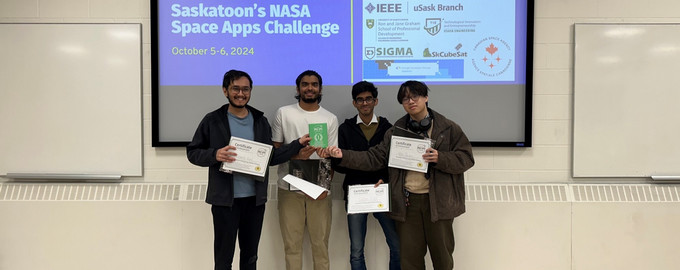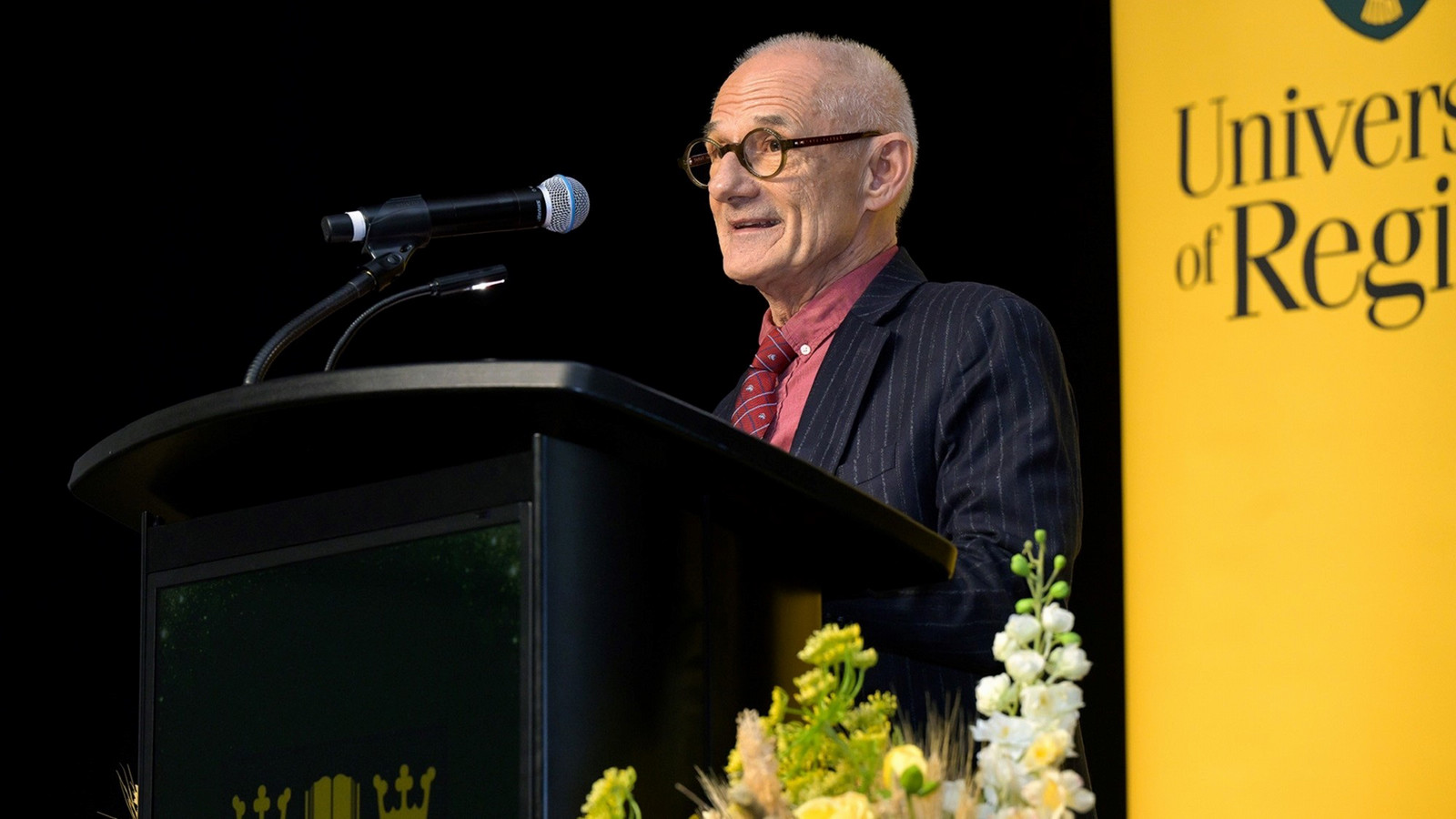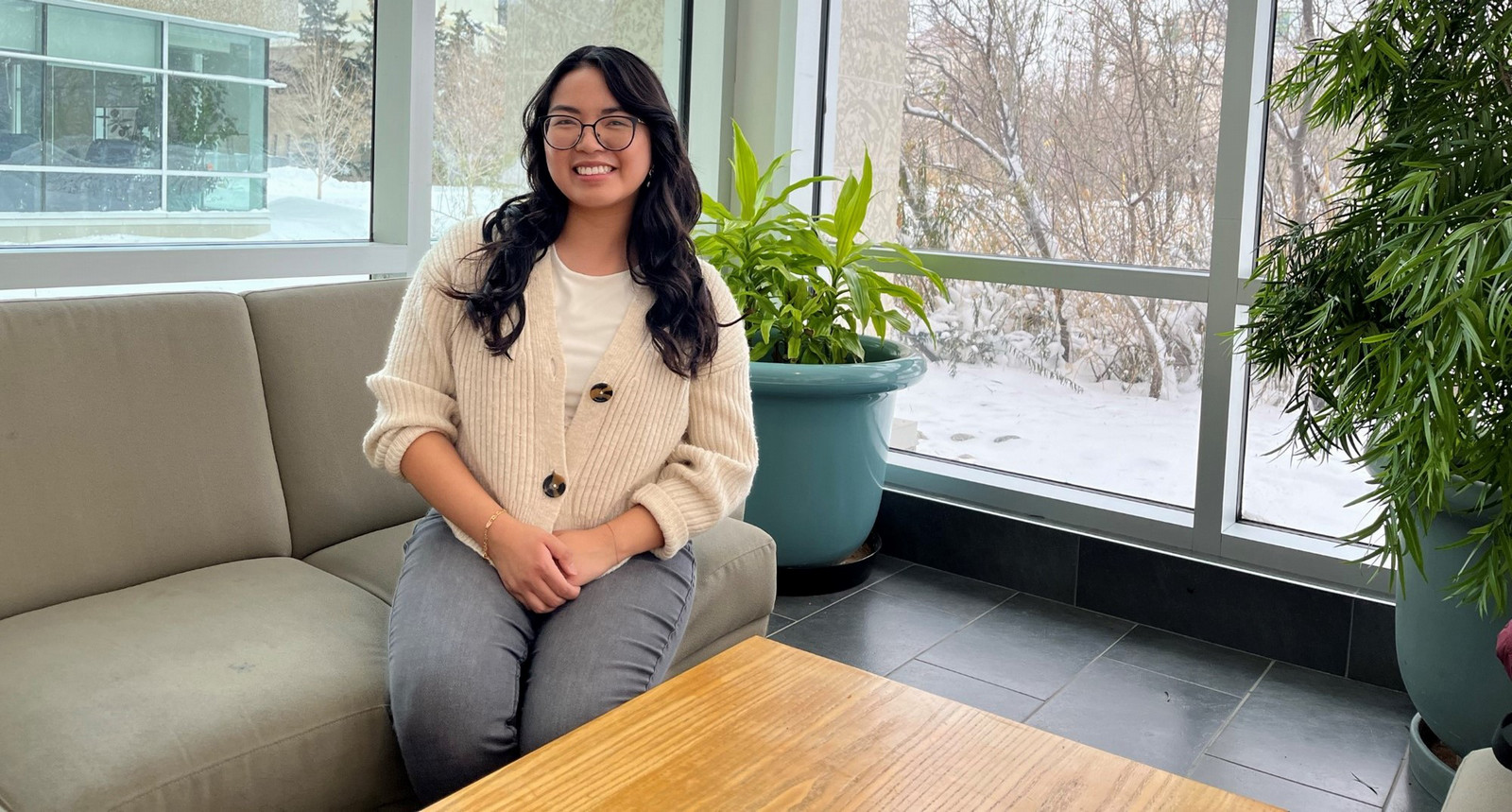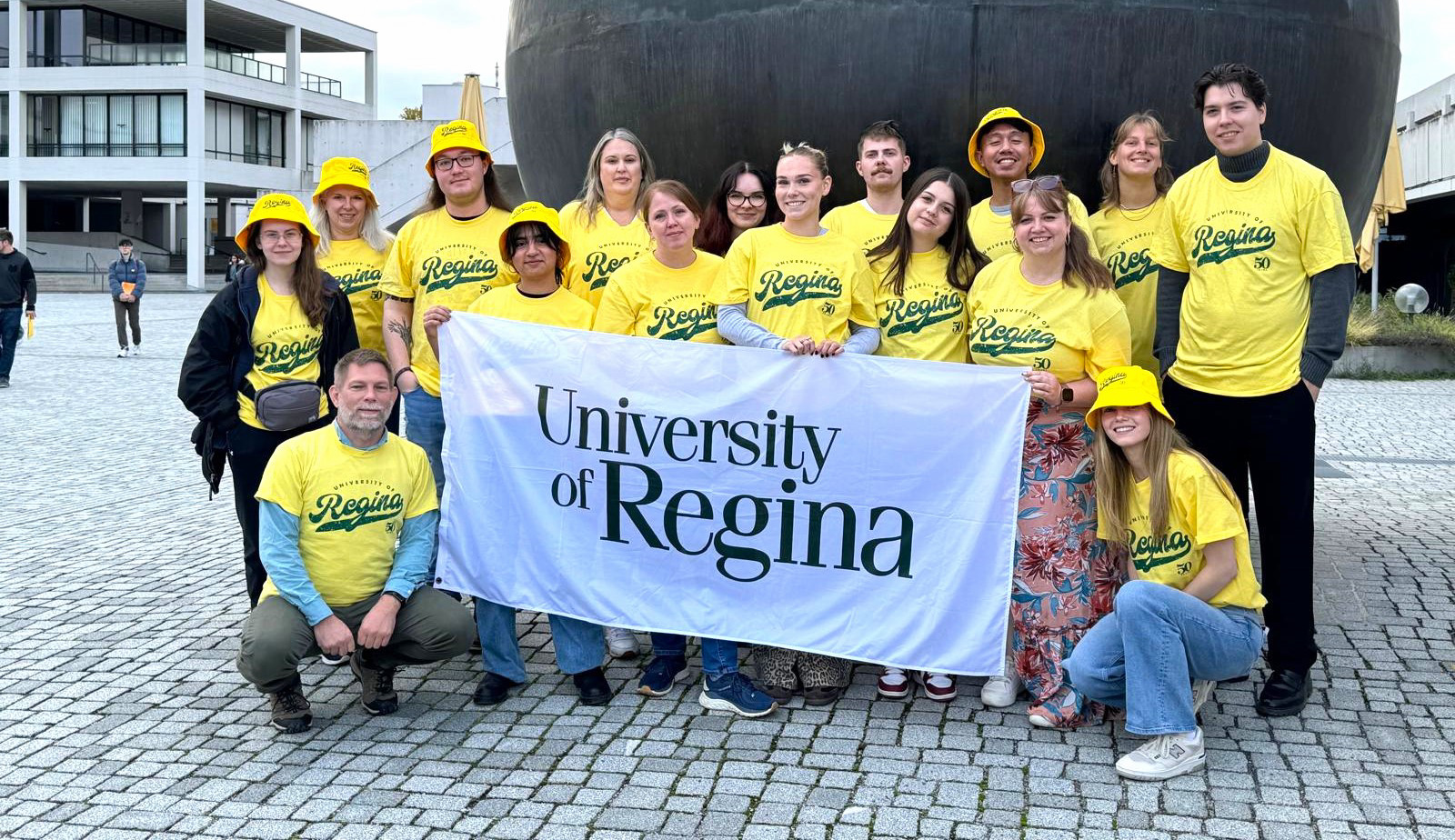Team Asteroid Destroyer, comprised of four enterprising University of Regina students, is the winner of the Global Connection Award at the 2024 NASA International Space Apps Challenge, the world’s largest annual hackathon. Held on October 5 and 6, 2024, the first phase of the competition saw 15,444 teams, comprised of 93,502 registered participants from 163 countries/territories.
One of our main goals was to design an app that connects with, and gives power to, a global audience – 2nd year Computer Science student Satyam Singh
During the hackathon, U of R computer science students Sathyajit Loganathan (MSc), Satyam Singh (2nd year), Khoi Nguyen (3rd year), and Kapeesh Kaul (MSc), created an interactive web application to help determine the most interesting exoplanetary targets (planets from outside our solar system) for observation by the Habitable Worlds Observatory (HWO) for habitability. The HWO is a large infrared/optical/ultraviolet space telescope NASA is working to launch in May 2027.
Singh explains that there are a lot of exoplanets orbiting a lot of stars and trying to observe each one to characterize whether it could contain life is impractical. Their app uses various filters to narrow down which planets are most likely to be habitable and worth further exploration by the HWO.
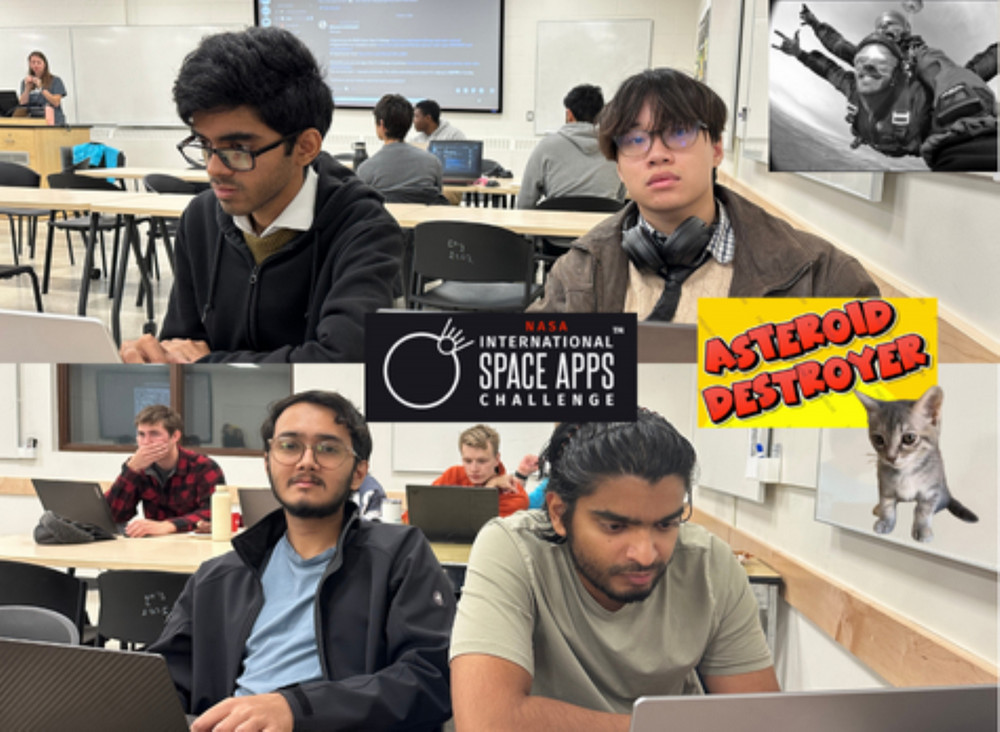
The team entered and won the local Saskatoon hackathon and, after surviving a series of subsequent judging events, became one of 40 teams to advance to the Global Finals in November 2024. These finalists were reviewed by an executive committee from NASA and space agency partners, who ultimately determined the 10 Global Award winners.
“The 10 award winners were announced at a big event that was live streamed on YouTube, Instagram, and everywhere on January 16, 2025, and that’s how we found out we had won,” said Singh. “I’ve done a lot of hackathons, but this is the world’s largest, and it just felt unreal for a second when we realized we’d won.”
The Global Connection Award, one of the 10 awards presented by NASA, is awarded to the project that best connects people around the world through technology. “One of our main goals was to design an app that connects with, and gives power to, a global audience, one that allows regular people, not just scientists, to explore and learn about exoplanets,” said Singh. “It was a great feeling knowing that our work had won.”
The two-day hackathon enables participants to use NASA’s free and open data, and its space agency partners’ space-based data, to address real-world problems on Earth and in space. Participants gather at hundreds of in-person and virtual local events around the world to address challenges submitted by NASA subject matter experts. These challenges range in complexity and topic, tasking participants with everything from creating artistic visualizations of NASA data to conceptualizing and developing informational apps and software programs.
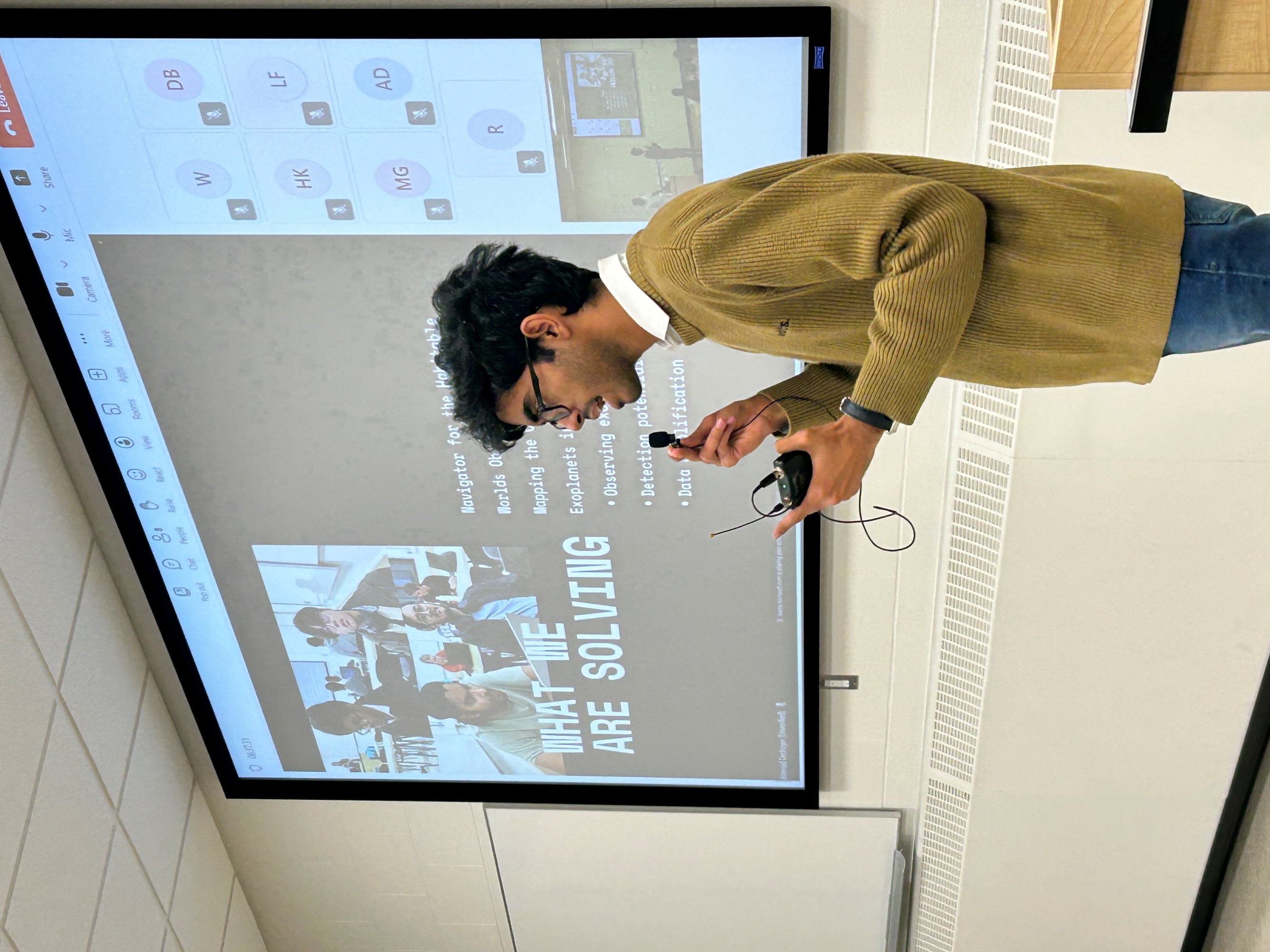
“I saw a post about the Saskatoon hackathon event on LinkedIn, which I thought it would be a fun one, so I asked my friends to join in with me and entered our team,” said Singh. “We had a great team with everyone having and using their different strengths, some of us focused on developing the proof of concept and prototype of the app, others worked on data manipulation, the presentation, PowerPoint, Qs & As, etc.”
The Asteroid Destroyer team and the WPMGang team from Western University who won this year’s Best Use of Science Award, are the first Canadian teams to win since NASA began the Space Apps Challenge in 2012. In addition to receiving a medal, the award winners receive an invitation to the Winners Celebration in June 2025, for the award presentation and to visit the NASA Headquarters in Washington, D.C.
Discover our Computer Science program.
Explore space and astronomy in our Physics program.
The team will also be meeting with the Canadian Space Agency in February to discuss their app and are currently considering ways to improve it.
“I love hackathons, I go all over Canada for them, and I hope that we inspire others to participate in them,” said Singh. “I’ve entered 42 hackathons and won 33 now and my advice to people who may be hesitant to enter is to just go for it. It’s not likely you’ll win your first time, although it’s possible, but you’ll learn from it and you can apply that experience to the next hackathon, and you’ll get better and more successful.”
Banner image: Team Asteroid Destroyer wins the NASA Space Apps Challenge in Saskatoon. Credit: Logan Fossenier.
About the University of Regina
2024 marked our 50th anniversary as an independent University (although our roots as Regina College date back more than a century!). As we celebrate our past, we work towards a future that is as limitless as the prairie horizon. We support the health and well-being of our 17,200 students and provide them with hands-on learning opportunities to develop career-ready graduates – more than 92,000 alumni enrich communities in Saskatchewan and around the globe. Our research enterprise has grown to 21 research centres and 9 Canada Research Chairs. Our campuses are on Treaties 4 and 6 - the territories of the nêhiyawak, Anihšināpēk, Dakota, Lakota, and Nakoda peoples, and the homeland of the Michif/Métis nation. We seek to grow our relationships with Indigenous communities to build a more inclusive future.
Let’s go far, together.
